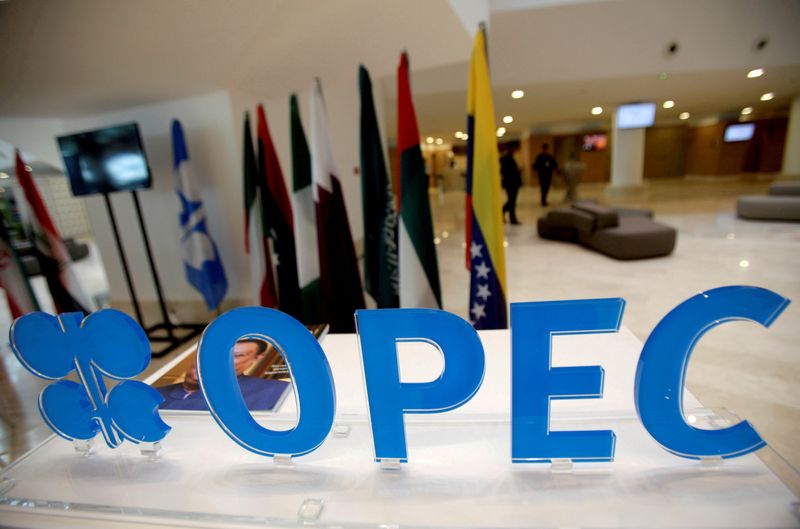By Steve Holland
WASHINGTON (Reuters) – The United States is pushing OPEC+ nations not to proceed with potential deep oil output cuts, a source familiar with the matter told Reuters, as President Joe Biden seeks to prevent U.S. gasoline prices from rising.
Washington is arguing to OPEC+ nations that economic fundamentals do not support an output cut, the source said.
OPEC+, which includes Saudi Arabia and Russia, is working on cuts in excess of 1 million barrels per day, sources told Reuters this week. The cuts could spur a recovery in oil prices.
The White House declined to comment.
“We are not going to comment on any OPEC action until OPEC acts,” said Adrienne Watson, spokesperson for the National Security Council.
“Of course we are always talking to all producers and consumers, including OPEC+ partners. That’s been the case for decades and across bipartisan administrations, including this one. We’ve been clear that energy supply should meet demand to support economic growth and lower prices for consumers around the world and we will continue to talk with our partners about that,” she said.
Biden has been grappling with gasoline prices all year. After a spike, they have gradually come down and his administration has touted this as a major accomplishment.
An increase in prices could serve to harm Democratic prospects in Nov. 8 midterm congressional elections.
The Organization of the Petroleum Exporting Countries and its allies, known as OPEC+, look set to cut output when they meet on Wednesday.
The move would squeeze supply in an oil market that energy company executives and analysts say is already tight due to healthy demand, a lack of investment and supply problems.
(Reporting by Steve Holland; Editing by Mark Porter and Sandra Maler)
